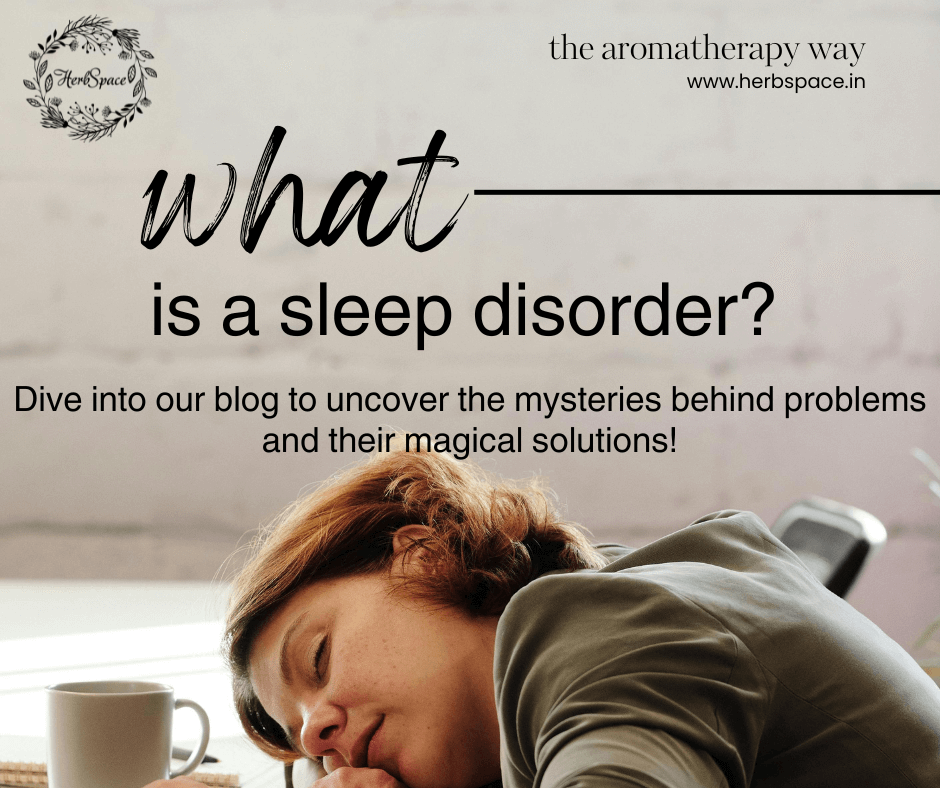
- HerbSpace
- Fri,04 2024
A Deep Dive into Sleep Disorders: Understanding, Causes, and Solutions
Do you find yourself tossing and turning at night, unable to get a good night's sleep? You're not alone. Sleep disorders affect millions of people worldwide, impacting not only our rest but also our overall health and well-being. In this article, we'll explore what sleep disorders are, what causes them, and what steps you can take to find relief.
What are Sleep Disorders?
Sleep disorders encompass a range of conditions that disrupt the normal pattern of sleep. These disorders can affect the quality, timing, and duration of sleep, leading to various physical and mental health issues. Common sleep disorders include insomnia, sleep apnea, narcolepsy, restless leg syndrome, and parasomnias.
How do Sleep Disorders Happen?
Several factors contribute to the development of sleep disorders. These may include:
- Genetics: Some sleep disorders, such as narcolepsy, have a genetic component, meaning they can run in families.
- Lifestyle: Poor sleep habits, irregular sleep schedules, excessive screen time before bed, and high-stress levels can all disrupt sleep patterns.
- Medical Conditions: Certain medical conditions, such as depression, anxiety, obesity, and respiratory disorders, can interfere with sleep.
- Environmental Factors: Noise, light, and an uncomfortable sleep environment can make it difficult to fall and stay asleep.
What Can You Do to Heal Sleep Disorders?
While dealing with a sleep disorder can be challenging, there are steps you can take to improve your sleep quality:
-
Establish a Consistent Sleep Schedule: Go to bed and wake up at the same time every day, even on weekends, to regulate your body's internal clock.
-
Create a Relaxing Bedtime Routine: Engage in calming activities before bed, such as reading, taking a warm bath, or practicing relaxation techniques like deep breathing or meditation.
-
Optimize Your Sleep Environment: Keep your bedroom dark, quiet, and cool to promote better sleep. Invest in a comfortable mattress and pillows that support your sleeping posture.
-
Limit Stimulants and Alcohol: Avoid caffeine and nicotine close to bedtime, as they can interfere with your ability to fall asleep. Similarly, limit alcohol intake, as it can disrupt the quality of your sleep.
-
Seek Professional Help: If your sleep disorder persists despite making lifestyle changes, consult a healthcare professional. They can help identify underlying causes and recommend appropriate treatments, such as therapy, medication, or sleep studies.
In conclusion, sleep disorders are common but manageable conditions that can significantly impact your quality of life. By understanding their causes and implementing healthy sleep habits, you can take control of your sleep and wake up feeling refreshed and rejuvenated each day. Remember, prioritizing sleep is essential for overall health and well-being.
Featured
-

Add a few drops of your favorite essential oil into your Shampoo or face wash and enjoy the benefits of aromatherapy” Easy peachy right? Well, not really!!! Before you roll your eyes and go “What are you talking
Read More... -

Add a few drops of your favorite essential oil into your Shampoo or face wash and enjoy the benefits of aromatherapy” Easy peasy right? Well, not really!!! Before you roll your eyes and go “What are you talking
Read More... -

In this blog series, we will learn all the important aspects related to essential oils. Let's start with what essential oil, concrete, resinoid, and absolute
Read More... -

Over the past few years, the market for essential oils has significantly grown. And, they are going to be the next big thing in the future. Essential oils undoubtedly have some unbeatable therapeutic properties that
Read More...